National
Paul Wells: The Second Finance Ministers Club
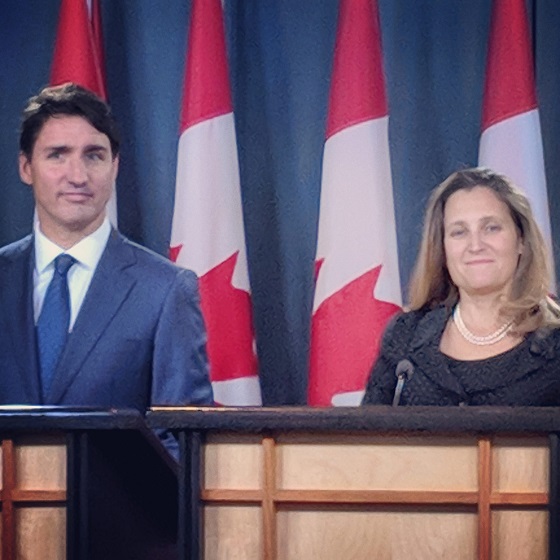
I want to write 5,000 words of narrative in the wake of Chrystia Freeland’s resignation, but we’re still in the middle of the story. Thoughts kind of pour out. I found myself telling La Presse, “‘What the f—k?’ has replaced ‘Hello’ as the standard greeting in Ottawa since Monday.” We’ll see whether they use that quote.
Here are some thoughts, from different angles. I don’t know whether Freeland’s resignation will blow over, the way Justin Trudeau’s last 20 messes did, because I don’t have a crystal ball, but I think Justin Trudeau hopes it’ll blow over. Because he always hopes it’ll blow over. I hear, as you do, rumours that the PM will resign.
On Monday night at the Laurier Club he didn’t look like he’d received the memo yet. On Tuesday his staff cancelled his year-end interviews, something I’ve never seen in 30 years in Ottawa. We’ll see.
Meanwhile, some thoughts.
1. A very British resignation
A standard conversational gambit in Ottawa this week is to point out that nobody’s ever seen a resignation letter like Freeland’s — I’ve given it some thought, and I’ve decided you’re a dink. (I paraphrase, barely.) Except that’s not quite true. Millions of people have seen dozens of resignation letters like it, because you see them every few weeks in the United Kingdom. And Chrystia Freeland was an editor in London for the Financial Times for years.
Canada is in some ways an unhealthily reticent country. I once covered an international summit where the only reason I knew anything the Canadian delegation had done was that I was sitting next to the journalists from France and I could overhear the French government’s briefings. Resignation letters here follow suit: it’s been a privilege, more time with my family, and out. You’re often left wondering, if you loved the boss so much, why leave?
But in England…
Rosie Duffield to Keir Starmer: “How dare you take our longed-for victory, the electorate’s sacred and precious trust, and throw it back in their individual faces and the faces of dedicated and hardworking Labour MPs?! The sleaze, nepotism and apparent avarice are off the scale. I am so ashamed of what you and your inner circle have done to tarnish and humiliate our once proud party.”
John Glen to Boris Johnson: “I can no longer reconcile my commitment to the role and to the financial services sector with the complete lack of confidence I have in your continuing leadership of our country… [R]ecent events concerning the handling of the appointment of the former Deputy Chief Whip, and the poor judgement you have shown, have made it impossible for me to square continued service with my conscience. The country deserves better…”
Nadine Dorries to Rishi Sunak: “You flashed your gleaming smile in your Prada shoes and Savile Row suit from behind a camera, but you just weren’t listening… But worst of all has been the spectacle of a prime minister demeaning his office by opening the gates to whip up a public frenzy against one of his own MPs…Since you took office a year ago, the country is run by a zombie Parliament where nothing meaningful has happened. What exactly has been done or have you achieved?”
This newsletter is my full-time job. Paid subscriptions at $5 a month or $50 a year are a great way to read all my work here.
2. The Zoom call
I resist biography as an analytical tool. People outgrow their backgrounds all the time.
But just about everybody who follows politics has been wondering how Trudeau could fire his most loyal lieutenant by a Zoom call three days before he needed her to deliver a crucial fall economic statement. If the Globe’s latest story is true, and he told her Mark Carney would take the job without knowing whether Carney will take the job, that’s even wilder. Who does that?
The short answer is, somebody who is used to getting his way. Then you look at Trudeau’s life and you think, why wouldn’t he expect to get his way?
The rich kid always knows the normies will cover for him. If he needs a ride, some kid with stars in his eyes will wave his keys and volunteer. If he’s hung over he can borrow the lecture notes. He shows up in racist makeup to yet another party — forcing every other person in the venue to decide how to respond — and once again nobody stands up to him or makes a fuss. Indeed, when the record of that behaviour threatens his political career decades later, there’ll be plenty of volunteers to criticize anyone who mentions the record, rather than criticizing the guy who acted like that.
He runs for the leadership of a national political party on a platform of “I’ll tell you what I stand for after I win.” He mentions carbon pricing precisely one time at his first national leaders’ debate. He dumps his electoral-reform promise at the first hurdle, and later, when asked about it, he blames the person who asks. He gaslights Canada’s first Indigenous attorney-general for months, but he is not particularly kinder to her replacement, who is ejected from Cabinet because, I don’t know, it’s Wednesday or whatever. He lets a 72-year-old man run for re-election and only after it’s over does he let the guy know he’s getting dumped from Cabinet.
He fires the Clerk of the Privy Council by news release while travelling.
In particular, if there’s anyone in the world he might have expected to tolerate the kind of high-handedness we’re hearing about Friday’s Zoom call, it’s Chrystia Freeland. Her eagerness to endorse him in the immediate aftermath of his latest cockup has been such a reliable feature of Canadian public life it’s devolved into a kind of shtick. SNC-Lavalin, 2019: “she has absolute confidence.” Blackface, six months later: “tremendous confidence.” WE Charity, 10 months after that: “The prime minister has my complete confidence.”
Perhaps only Jagmeet Singh has shown more confidence than Freeland, over the years, in Trudeau’s leadership. Given that record — and his own much longer record of taking advantage of others’ generosity — it’s not too much of a stretch to think that at some point he decided his deputy prime minister was just another easy mark.
Turns out that’s the kind of mistake he only needed to make once.
3. Speaking of Jagmeet Singh
He’ll qualify for his pension in 70 days. After his astonishing scrum on Monday, he might as well put it on a T-shirt.
4. After Trudeau
Say he quits. What next?
Here’s something I’m starting to hear from Liberals. I don’t believe I’m the first to write about it, but it hasn’t received enough attention yet.
Can the party ensure the legitimacy of its leadership succession process?
I suspect some large number of the presumed candidates for his succession won’t run. They haven’t exactly been a bold lot so far. But assume for the sake of argument that there are four or five candidates, and none has an insurmountable advantage.
The Liberal Party transformed its leadership-selection process for the 2013 race: preferential vote among “supporters.” Supporters didn’t need any record of involvement with the party, didn’t need to pledge any support, didn’t need to pay a dime in return for voting rights. Whee! Populist rush: 300,000 people registered as supporters, 130,000 voted. Trudeau won overwhelmingly on the first ballot. Of course: he was the only candidate most people voting in the contest had ever heard of.
After a big defeat, or with such a defeat looming, figure far less than half as many people would be involved next time. Say, very generously, 40,000 supporters.
How hard would it be to rig that contest for mischievous purposes or worse? Probably not hard enough. In a vote open to every random “supporter,” it would take only a few thousand, or tens of thousands, of supporters to capture a major national political party for any cause or faction that might want one.
I traded emails with a former senior Liberal organizer about all this today. Without prompting, this veteran of many leadership contests mentioned the need to “ensure… that groups not Liberal-friendly are not organizing to disrupt the democratic process within the Party.” Those groups could include supporters of one side in the Israel-Hamas dispute. Or proxies for a hostile regime. Or pro-life or anti-MAID or anti-vaccine groups. Or practical jokers: Could the process as currently constituted block a write-in campaign for Doris Day?
This newsletter is my full-time job. Paid subscriptions at $5 a month
or $50 a year are a great way to read all my work here.

Alberta
Ford and Trudeau are playing checkers. Trump and Smith are playing chess
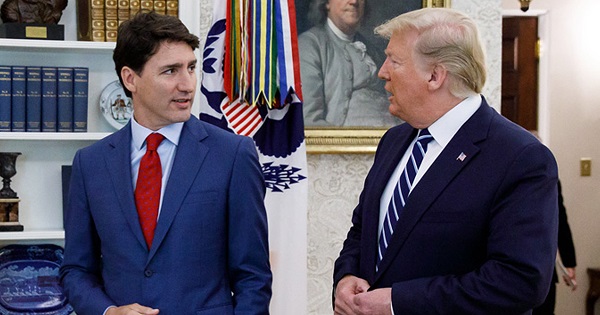
By Dan McTeague
Ford’s calls for national unity – “We need to stand united as Canadians!” – in context feels like an endorsement of fellow Electric Vehicle fanatic Trudeau. And you do wonder if that issue has something to do with it. After all, the two have worked together to pump billions in taxpayer dollars into the EV industry.
There’s no doubt about it: Donald Trump’s threat of a blanket 25% tariff on Canadian goods (to be established if the Canadian government fails to take sufficient action to combat drug trafficking and illegal crossings over our southern border) would be catastrophic for our nation’s economy. More than $3 billion in goods move between the U.S. and Canada on a daily basis. If enacted, the Trump tariff would likely result in a full-blown recession.
It falls upon Canada’s leaders to prevent that from happening. That’s why Justin Trudeau flew to Florida two weeks ago to point out to the president-elect that the trade relationship between our countries is mutually beneficial.
This is true, but Trudeau isn’t the best person to make that case to Trump, since he has been trashing the once and future president, and his supporters, both in public and private, for years. He did so again at an appearance just the other day, in which he implied that American voters were sexist for once again failing to elect the nation’s first female president, and said that Trump’s election amounted to an assault on women’s rights.
Consequently, the meeting with Trump didn’t go well.
But Trudeau isn’t Canada’s only politician, and in recent days we’ve seen some contrasting approaches to this serious matter from our provincial leaders.
First up was Doug Ford, who followed up a phone call with Trudeau earlier this week by saying that Canadians have to prepare for a trade war. “Folks, this is coming, it’s not ‘if,’ it is — it’s coming… and we need to be prepared.”
Ford said that he’s working with Liberal Finance Minister Chrystia Freeland to put together a retaliatory tariff list. Spokesmen for his government floated the idea of banning the LCBO from buying American alcohol, and restricting the export of critical minerals needed for electric vehicle batteries (I’m sure Trump is terrified about that last one).
But Ford’s most dramatic threat was his announcement that Ontario is prepared to shut down energy exports to the U.S., specifically to Michigan, New York, Wisconsin, and Minnesota, if Trump follows through with his plan. “We’re sending a message to the U.S. You come and attack Ontario, you attack the livelihoods of Ontario and Canadians, we’re going to use every tool in our toolbox to defend Ontarians and Canadians across the border,” Ford said.
Now, unfortunately, all of this chest-thumping rings hollow. Ontario does almost $500 billion per year in trade with the U.S., and the province’s supply chains are highly integrated with America’s. The idea of just cutting off the power, as if you could just flip a switch, is actually impossible. It’s a bluff, and Trump has already called him on it. When told about Ford’s threat by a reporter this week, Trump replied “That’s okay if he does that. That’s fine.”
And Ford’s calls for national unity – “We need to stand united as Canadians!” – in context feels like an endorsement of fellow Electric Vehicle fanatic Trudeau. And you do wonder if that issue has something to do with it. After all, the two have worked together to pump billions in taxpayer dollars into the EV industry. Just over the past year Ford and Trudeau have been seen side by side announcing their $5 billion commitment to Honda, or their $28.2 billion in subsidies for new Stellantis and Volkswagen electric vehicle battery plants.
Their assumption was that the U.S. would be a major market for Canadian EVs. Remember that “vehicles are the second largest Canadian export by value, at $51 billion in 2023 of which 93% was exported to the U.S.,”according to the Canadian Vehicle Manufacturers Association, and “Auto is Ontario’s top export at 28.9% of all exports (2023).”
But Trump ran on abolishing the Biden administration’s de facto EV mandate. Now that he’s back in the White House, the market for those EVs that Trudeau and Ford invested in so heavily is going to be much softer. Perhaps they’d like to be able to blame Trump’s tariffs for the coming downturn rather than their own misjudgment.
In any event, Ford’s tactic stands in stark contrast to the response from Alberta, Canada’s true energy superpower. Premier Danielle Smith made it clear that her province “will not support cutting off our Alberta energy exports to the U.S., nor will we support a tariff war with our largest trading partner and closest ally.”
Smith spoke about this topic at length at an event announcing a new $29-million border patrol team charged with combatting drug trafficking, at which said that Trudeau’s criticisms of the president-elect were, “not helpful.” Her deputy premier Mike Ellis was quoted as saying, “The concerns that president-elect Trump has expressed regarding fentanyl are, quite frankly, the same concerns that I and the premier have had.” Smith and Ellis also criticized Ottawa’s progressively lenient approach to drug crimes.
(For what it’s worth, a recent Léger poll found that “Just 29 per cent of [Canadians] believe Trump’s concerns about illegal immigration and drug trafficking from Canada to the U.S. are unwarranted.” Perhaps that’s why some recent polls have found that Trudeau is currently less popular in Canada than Trump at the moment.)
Smith said that Trudeau’s criticisms of the president-elect were, “not helpful.” And on X/Twitter she said, “Now is the time to… reach out to our friends and allies in the U.S. to remind them just how much Americans and Canadians mutually benefit from our trade relationship – and what we can do to grow that partnership further,” adding, “Tariffs just hurt Americans and Canadians on both sides of the border. Let’s make sure they don’t happen.”
This is exactly the right approach. Smith knows there is a lot at stake in this fight, and is not willing to step into the ring in a fight that Canada simply can’t win, and will cause a great deal of hardship for all involved along the way.
While Trudeau indulges in virtue signaling and Ford in sabre rattling, Danielle Smith is engaging in true statesmanship. That’s something that is in short supply in our country these days.
As I’ve written before, Trump is playing chess while Justin Trudeau and Doug Ford are playing checkers. They should take note of Smith’s strategy. Honey will attract more than vinegar, and if the long history of our two countries tell us anything, it’s that diplomacy is more effective than idle threats.
Dan McTeague is President of Canadians for Affordable Energy.
armed forces
Canada among NATO members that could face penalties for lack of military spending
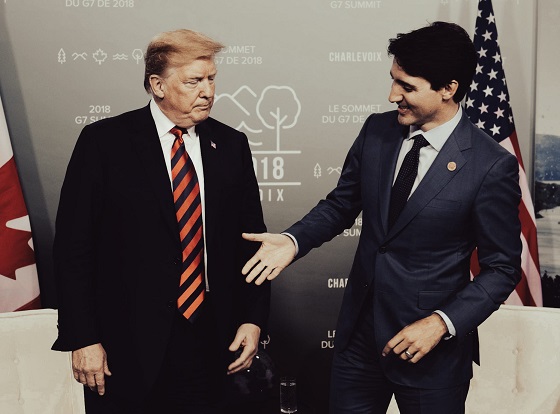

From the Daily Caller News Foundation
By J.D. Foster
Trump should insist on these measures and order that unless they are carried out the United States will not participate in NATO. If Canada is allowed entry to the Brussels headquarters, then United States representatives would stay out.
Steps Trump Could Take To Get NATO Free Riders Off America’s Back
In thinking about NATO, one has to ask: “How stupid do they think we are?”
The “they,” of course, are many of the other NATO members, and the answer is they think we are as stupid as we have been for the last quarter century. As President-elect Donald Trump observed in his NBC interview, NATO “takes advantage of the U.S.”
Canada is among the “they.” In November, The Economist reported that Canada spends about 1.3% of GDP on defense. The ridiculously low NATO minimum is 2%. Not to worry, though, Premier Justin Trudeau promises Canada will hit 2% — by 2032.
A quarter of NATO’s 32 members fall short of the 2% minimum. The con goes like this: We are short now, but we will get there eventually. Trust us, wink, wink.
The United States has put up with this nonsense from some members since the collapse of the Soviet Union. That is how stupid we have been.
Trump once threatened to pull the United States out of NATO, then he suggested the United States might not come to the defense of a NATO member like Canada. Naturally, free-riding NATO members grumbled.
In another context, former Army Lt. Gen. Russell Honore famously outlined the first step in how the United States should approach NATO: Don’t get stuck on stupid.
NATO is a coalition of mutual defense. Members who contribute little to the mutual defense are useless. Any country not spending its 2% of GDP on defense by mid-year 2025 should see its membership suspended immediately.
What does suspended mean? Consequences. Its military should not be permitted to participate in any NATO planning or exercises. And its offices at NATO headquarters and all other NATO facilities should be shuttered and its citizens banned until such time as their membership returns to good standing. And, of course, the famous Article V assuring mutual defense would be suspended.
Further, Trump should insist on these measures and order that unless they are carried out the United States will not participate in NATO. If Canada is allowed entry to the Brussels headquarters, then United States representatives would stay out.
Nor should he stop there. The 2% threshold would be fine in a world at peace with no enemies lurking. That does not describe the world today. Trump should declare the threshold for avoiding membership suspension will be 2.5% in 2026 and 3% by 2028 – not 2030 as some suggest.
The purpose is not to destroy NATO, but to force NATO to be relevant. America needs strong defense partners who pull their weight, not defense welfare queens. If NATO’s members cannot abide by these terms, then it is time to move on and let NATO go the way of the League of Nations.
Trump may need to take the lead in creating a new coalition of those willing to defend Western values. As he did in rewriting the former U.S.-Mexico-Canada trade agreement, it may be time to replace a defective arrangement with a much better one.
This still leaves the problem of free riders. Take Belgium, for example, another security free rider. Suppose a new defense coalition arises including the United States and Poland and others bordering Russia. Hiding behind the coalition’s protection, Belgium could just quit all defense spending to focus on making chocolates.
This won’t do. The members of the new defense coalition must also agree to impose a tariff regime on the security free riders to help pay for the defense provided.
The best solution is for NATO to rise to our mutual security challenges. If NATO can’t do this, then other arrangements will be needed. But it is time to move on from stupid.
J.D. Foster is the former chief economist at the Office of Management and Budget and former chief economist and senior vice president at the U.S. Chamber of Commerce. He now resides in relative freedom in the hills of Idaho.
-
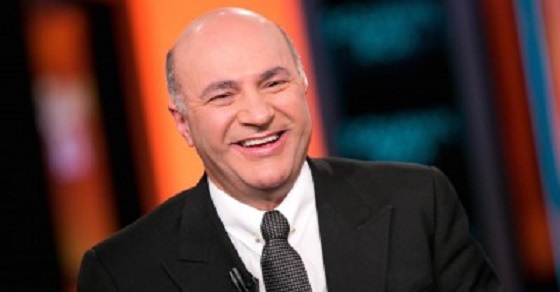
 Alberta13 hours ago
Alberta13 hours agoProposed $70 billion AI data centre in MD of Greenview could launch an incredible new chapter for western Canadian energy
-

 COVID-192 days ago
COVID-192 days agoAustralian doctor who criticized COVID jabs has his suspension reversed
-
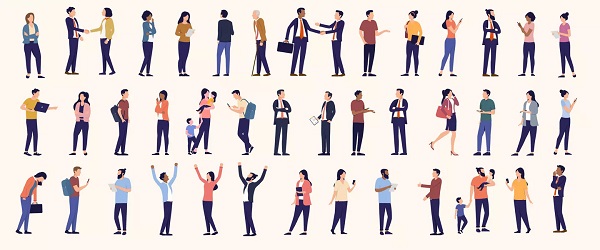
 Business1 day ago
Business1 day agoMassive growth in federal workforce contributes to Ottawa’s red ink
-

 Alberta9 hours ago
Alberta9 hours agoYour towing rights! AMA unveils measures to help fight predatory towing
-
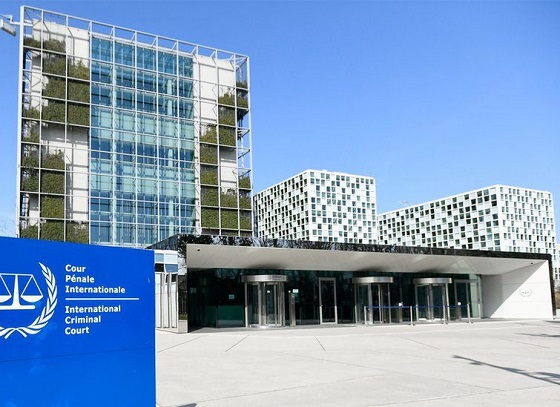
 Frontier Centre for Public Policy1 day ago
Frontier Centre for Public Policy1 day agoFalse Claims, Real Consequences: The ICC Referrals That Damaged Canada’s Reputation
-
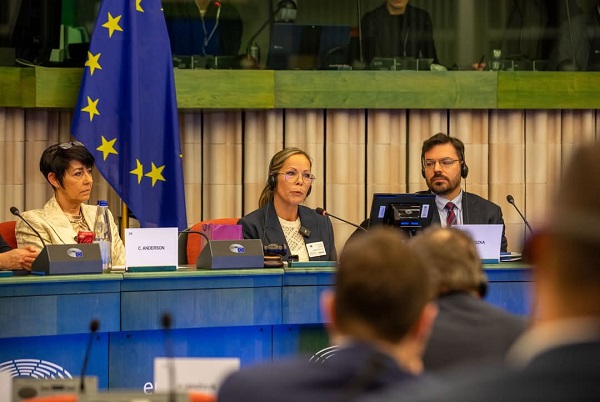
 COVID-192 days ago
COVID-192 days agoFreedom Convoy leader Tamara Lich calls out Trudeau in EU Parliament address for shunning protesters
-
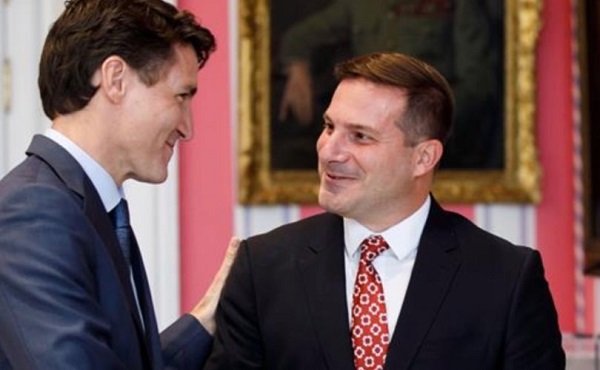
 COVID-191 day ago
COVID-191 day agoFormer Trudeau minister faces censure for ‘deliberately lying’ about Emergencies Act invocation
-

 National1 day ago
National1 day agoWhen’s the election? Singh finally commits. Poilievre asks Governor General to step in





